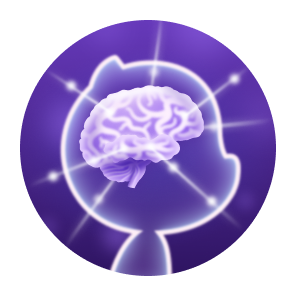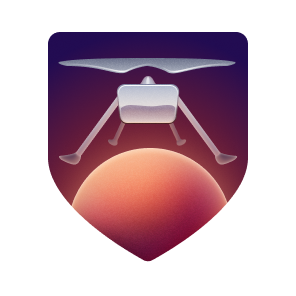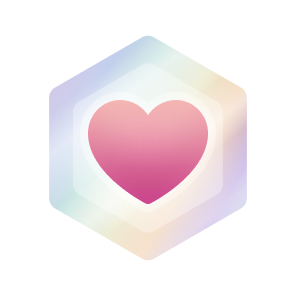I do research in the areas of machine learning, artificial intelligence, cognition, and neuroscience.
I develop a set of software tools for researchers studying acoustic communication:
https://github.com/vocalpy
-
vocalpy
https://github.com/vocalpy/vocalpy
core package for acoustic communication research in Python -
vak
https://github.com/vocalpy/vak
neural network toolbox for animal vocalizations and bioacoustics -
crowsetta
https://github.com/vocalpy/crowsetta
a tool to work with any format for annotating animal vocalizations
I collaborated with Yarden Cohen
and Tim Gardner
to develop a neural network that learns
how to segment and annotate birdsong from spectrograms:
https://github.com/yardencsGitHub/tweetynet
Article in eLife: https://elifesciences.org/articles/63853
-
hybrid-vocal-classifier: a Python machine learning library for animal vocalizations and bioacoustics https://hybrid-vocal-classifier.readthedocs.io/en/latest/
https://github.com/vocalpy/hybrid-vocal-classifier
combinesscikit-learnwith functionality for researchers studying animal vocalizations -
evfuncs
https://github.com/NickleDave/evfuncs
functions for working with files created by the EvTAF program and the evsonganaly GUI.
The functions can be used to work with Bengalese finch song in this data repository:
https://figshare.com/articles/Bengalese_Finch_song_repository/4805749 -
birdsong-recognition-dataset
https://github.com/NickleDave/birdsong-recognition-dataset
functions for working with this data repository:
https://figshare.com/articles/BirdsongRecognition/3470165 -
ML-comparison-birdsong
https://github.com/NickleDave/ML-comparison-birdsong
code to accompany the SciPy 2016 Proceedings Paper "Comparison of machine learning methods applied to birdsong element classification"
http://conference.scipy.org/proceedings/scipy2016/david_nicholson.html -
songdkl
https://github.com/NickleDave/songdkl
Python package for working with the $\text{Song}D{KL}$ metric, as described in: Mets, David G., and Michael S. Brainard. "An automated approach to the quantitation of vocalizations and vocal learning in the songbird." PLoS computational biology 14.8 (2018): e1006437.
https://journals.plos.org/ploscompbiol/article?id=10.1371/journal.pcbi.1006437&rev=2
in collaboration with David Mets.
During my post-doctoral fellowship at Emory University in Atlanta, Georgia, I worked with Astrid Prinz in the Biology department, on brain-inspired algorithms for continual machine learning, as part of a DARPA program. The Prinz lab provided neuroscience expertise for members of our team working on algorithms for goal-driven perception. My goal for this project was to understand visual search: how does our brain solve the problem of finding an object we're looking for?
- "Could simplified stimuli change how the brain performs visual search tasks? A deep neural network study"
https://github.com/NickleDave/Nicholson-Prinz-JOV-DNNs-bio-vis
"Here we use deep neural networks to test how optimizing models for the statistics of one distribution of images constrains performance on a task using images from a different distribution." Code for article in Journal of Vision: https://jov.arvojournals.org/article.aspx?articleid=2778890
Preprint: https://www.biorxiv.org/content/10.1101/2020.10.26.354258v1
-
visual-search-nets
https://github.com/NickleDave/visual-search-nets
library for modeling visual search behavior with neural networks. -
searchstims
https://github.com/NickleDave/searchstims
Python package to make stimuli like those used in classic visual search experiments. -
Recurrent Models of Visual Attention
https://github.com/NickleDave/thrillington
replication of "Recurrent models of visual attention", Mnih et al. 2014 -
aver: active vision models in Nengo
https://github.com/NickleDave/aver
framework for visual search models that incorporate eye movements.
proposal for Nengo summer school 2019.
- learning-curves
https://github.com/NickleDave/learning-curves
study of Cortes et al. 1994 "Learning Curves" paper with scikit-learn and scipy for first Atlanta Jupyter Day.
-
Data Science for Scientists ATL
https://data-science-for-scientists-atl.github.io/
https://github.com/Data-Science-for-Scientists-ATL -
BEST data science short course
https://github.com/NickleDave/BEST-data-science-short-course
short course in scientific computing and data science sponsored by the Atlanta BEST program. -
EWIN Coding Bootcamp
https://github.com/NickleDave/EWIN-coding-bootcamp
coding bootcamp sponsored by Emory Women In Neuroscience








